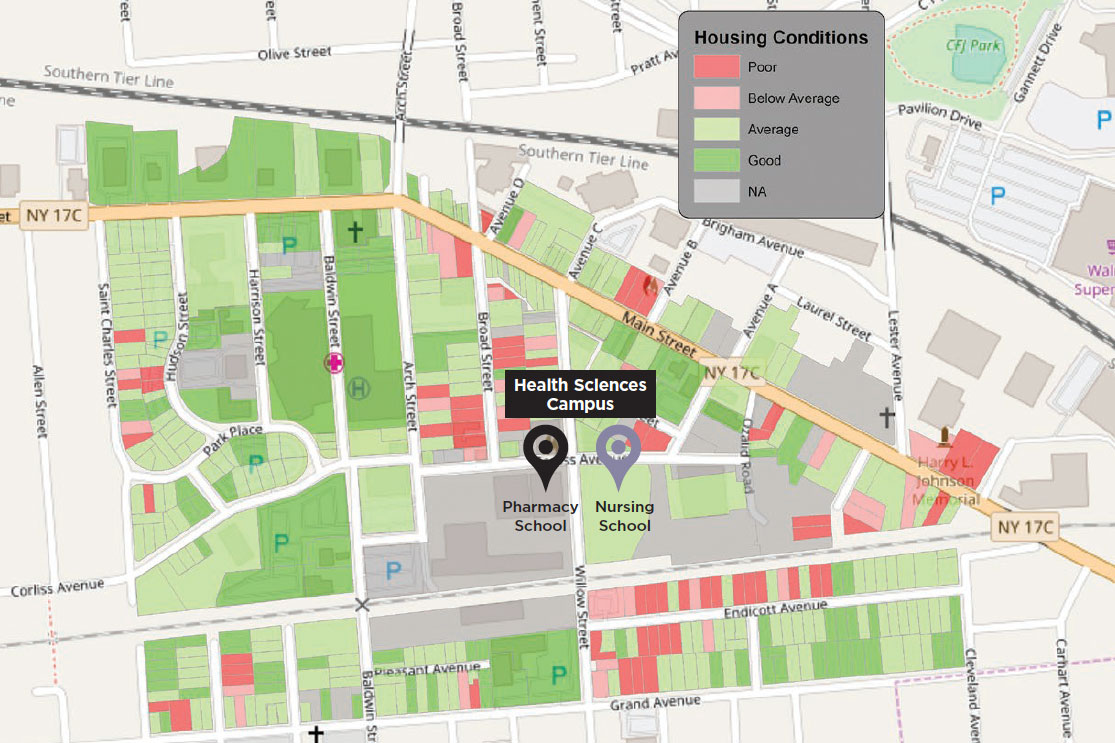Binghamton University to track impact of Pharmacy School on Johnson City
Story map will track changes before, after schools open

Twenty-five years from now, some journalist or scholar will want to assess the impact of Binghamton University’s Health Sciences Campus on the Johnson City neighborhood where it’s being built. Lucky for that person, the research has already started.
The Johnson City Revitalization Project is a story map — an online collection of data, interviews, photos and videos — that documents what’s going on today in order to provide a baseline against which future data can be measured. The School of Pharmacy and Pharmaceutical Sciences is expected to open this summer, and the Decker School of Nursing building is under construction.
The Geography Department’s Distinguished Service Professor John Frazier is leading the story map effort, with help from undergraduate and graduate students, and geography faculty and staff. The project organizes information in a manner that tells the story of the revitalization process and is able to track changes going forward.
“Most studies like this take place 20 years out, but we’re starting on the ground floor with this community and how it has degraded since the 1960s. Now we’re beginning with the contemporary picture to see the impact of state dollars and University assistance in growing the economy. It’s a good initial picture,” Frazier says.
A big issue is gentrification — what happens to the low-income people living in and around properties being acquired and rehabilitated for new uses?
“Social equity is key,” Frazier says. “But we have to look at both sides of the coin. There are some people who believe crime results from the prevalence of low-income residents and they want to get them out. The other side is these are poor people who shouldn’t be painted with a broad brush and who need help.
“That’s why we want to do this project in the most comprehensive way we can — to address all of these issues that occur when we do revitalization,” Frazier adds. “We want this to be a demonstration project of how revitalization can and should be done. The literature on gentrification is negative and this project offers the opportunity to do it right and be a demonstration project.”

